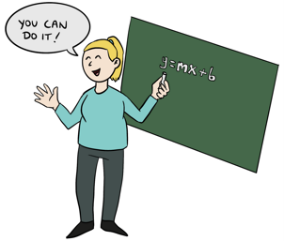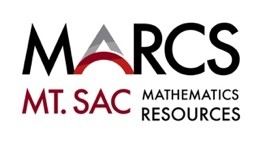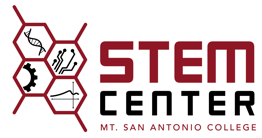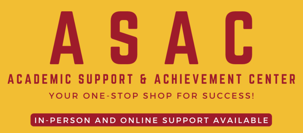MATH 120 Finite Mathematics
- Plan to study outside of class at least 6 hours each week, or more if it has been a while since you have taken a math class.
- Study actively by doing practice problems, making note cards, and making study guides.
- Attend professor's student hours (office hours) and math support centers regularly.
- Form study groups with other students in class and try to explain problems as you do them.

Finite Math consists of an umbrella of math topics that incorporates mathematical modeling with application to business, economics, and social sciences.
- Basic arithmetic
- Converting between fractions, decimals, and percentages
- Order of Operations
- Expressing and solving linear equations and inequalities
- Equations of lines
- Evaluating functions
- Systems of equations
- Properties of exponents
- Graphing inequalities
- Join the MATH 120 Math Jumpstart Canvas page, created by Mt. SAC math faculty, with topic-based modules that include under-5-minute refresher videos and practice problems to review at your own pace.
- Enroll in a free faculty-led noncredit math prep class through AIME (Academic Instruction for Math and English) in Mt. SAC’s School of Continuing Education.
- MATH 120+12 Finite Mathematics w/ Support [5 units] (Starting Fall 2023)
- MATH 100 Survey of College Math [3 units] or MATH 100+10A Survey of College Math w/ Support [5 units]
- MATH 105 Mathematical Concepts for Elementary Teachers [4 units]
- MATH 110 Elementary Statistics [3 units] or MATH 110+11 Elementary Statistics w/ Support [5 units]
- MATH 130 College Algebra [4 units] or MATH 130+13 College Algebra w/ Support [6 units]
Note that course numbering does not indicate difficulty of course content. If you have further questions about which course is right for you, please speak to a counselor.
Anyone can learn finite math! It is not a skill set that one is either born with or
not. YOU are capable not only of learning finite math, but also of excelling in finite
math!
For additional finite mathematics help, please visit the Math Activities Resource Centers (MARCS) or the Academic Support and Achievement Center (ASAC).





